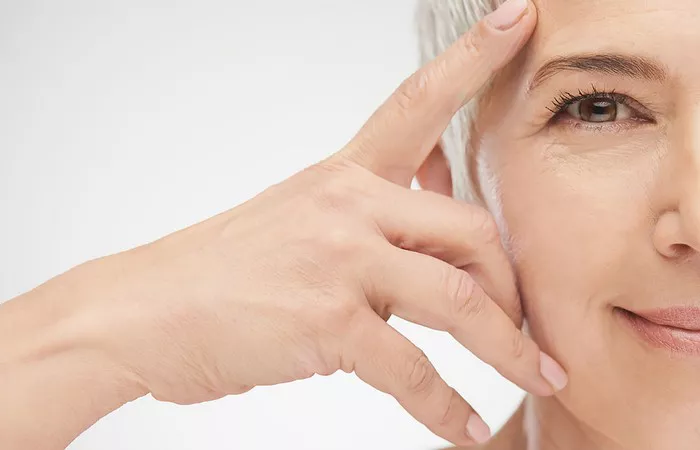In the quest for youthful and vibrant skin, many people turn to anti-aging treatments. These treatments encompass a wide range of procedures and products aimed at reducing the signs of aging and maintaining a more youthful appearance. From skincare routines to advanced medical interventions, the field of anti-aging treatment has seen significant advancements in recent years. This article aims to explore the various aspects of anti-aging treatment and shed light on what options are available to those seeking to combat the effects of aging.
Understanding the Aging Process
Before delving into anti-aging treatments, it is important to understand the underlying processes that contribute to aging. Aging is a natural and inevitable part of life, influenced by both genetic and environmental factors. Over time, the skin gradually loses its elasticity, collagen production decreases, and wrinkles become more prominent. Additionally, exposure to factors such as sunlight, pollution, and unhealthy lifestyle choices can accelerate the aging process.
Skincare Regimens as Anti-Aging Treatments
One of the first lines of defense against aging is adopting a comprehensive skincare regimen. Cleansing, moisturizing, and protecting the skin from harmful sun rays are fundamental steps in any anti-aging routine. Regular use of sunscreen with a high SPF can help prevent photoaging and protect against harmful ultraviolet (UV) radiation.
Furthermore, incorporating products containing antioxidants, such as vitamin C and retinol, can help counteract the damage caused by free radicals and boost collagen production. Hydration is also crucial for maintaining healthy skin, so using moisturizers and drinking plenty of water can contribute to a more youthful complexion.
Topical Treatments: Creams and Serums
Beyond basic skincare routines, a wide array of topical treatments exists to address specific signs of aging. Anti-aging creams and serums often contain ingredients like hyaluronic acid, peptides, and botanical extracts that claim to reduce wrinkles, improve skin texture, and enhance firmness.
Retinoids, derived from vitamin A, are commonly used in anti-aging products for their ability to accelerate cell turnover, reduce fine lines, and even out pigmentation. However, it is important to note that these products may cause skin irritation and increased sensitivity to the sun, so cautious use and sun protection are advised.
Minimally Invasive Procedures
For individuals seeking more immediate and noticeable results, minimally invasive procedures can provide effective anti-aging treatments. These procedures are typically performed by trained professionals and offer significant improvements with minimal downtime.
Dermal fillers, such as hyaluronic acid injections, can plump up sagging skin and fill in deep wrinkles, restoring a more youthful appearance. Botox injections can temporarily relax facial muscles, reducing the appearance of fine lines and wrinkles caused by repetitive facial expressions.
Chemical peels involve applying a chemical solution to the skin, which exfoliates the outer layer and stimulates collagen production. This treatment can improve skin tone, reduce fine lines, and diminish the appearance of age spots.
Medical Interventions
In some cases, individuals may opt for more drastic measures to combat the signs of aging. Various medical interventions exist that can provide long-lasting or permanent results.
Laser resurfacing utilizes high-energy beams of light to remove damaged skin cells and stimulate the growth of new, healthier skin. It can effectively reduce the appearance of wrinkles, scars, and uneven pigmentation.
Microdermabrasion involves using a device to gently exfoliate the skin, removing dead skin cells and promoting the growth of new cells. It can help improve skin texture, minimize fine lines, and rejuvenate dull-looking skin.
Facelifts and other surgical procedures are considered more invasive options for those seeking dramatic results. Facelift surgery involves tightening the underlying facial muscles and removing excess skin to create a smoother, more youthful appearance.
Lifestyle Factors and Anti-Aging
While anti-aging treatments can provide significant improvements, adopting a healthy lifestyle is essential for long-term results. Certain habits can accelerate the aging process, while others can help maintain a youthful appearance.
Regular exercise promotes healthy circulation, which supplies vital nutrients to the skin. It also helps reduce stress, which can contribute to premature aging. A balanced diet rich in antioxidants, vitamins, and minerals supports overall skin health and can slow down the aging process.
Avoiding smoking and excessive alcohol consumption are crucial for preserving youthful skin. Smoking leads to the breakdown of collagen and elastin fibers, resulting in sagging skin and wrinkles. Alcohol dehydrates the body, leading to dry skin and premature aging.
Adequate sleep is also essential for maintaining healthy skin. During sleep, the body repairs and regenerates cells, including those responsible for skin health. Lack of sleep can lead to dull complexion, fine lines, and dark circles under the eyes.
Conclusion
Anti-aging treatments encompass a wide range of options, from simple skincare routines to complex medical procedures. While these treatments can provide noticeable improvements, it is important to approach anti-aging with realistic expectations and a comprehensive understanding of the available options.
In conclusion, anti-aging treatment encompasses a wide range of options tailored to individual needs and desired outcomes. From basic skincare routines to advanced medical interventions, there are various approaches to combat the signs of aging. Understanding the aging process, consulting with skincare professionals, and adopting a holistic approach that includes healthy lifestyle choices can help individuals achieve a more youthful and radiant appearance. It’s essential to remember that aging is a natural part of life, and while anti-aging treatments can enhance one’s appearance, embracing self-acceptance and self-care are equally important for overall well-being.


